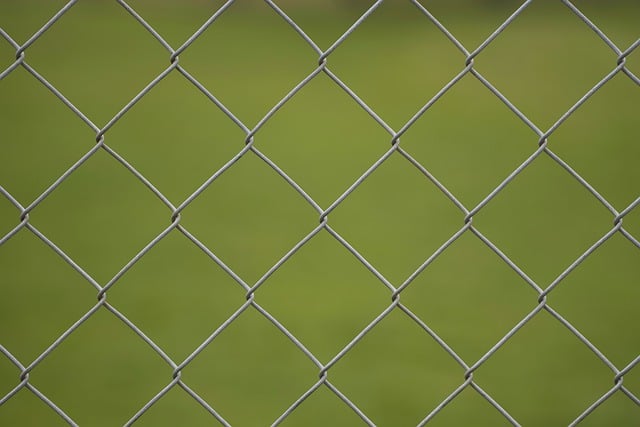In New Bedford, MA, ensuring the longevity and quality of your fence investment is paramount. This article serves as a comprehensive guide to navigating the complex landscape of fence warranties and guarantees. We’ll demystify the various types of coverage available for both residential and commercial properties, highlighting key exclusions and limitations. By understanding these intricacies, homeowners and business owners alike can protect their fences effectively and know what to expect during the claims process.
- Understanding Fence Warranty Coverage in New Bedford
- Types of Guarantees for Residential Fences
- Commercial Fence Warranties: What to Expect
- Common Exclusions and Limitations
- Filing a Claim: A Step-by-Step Guide
Understanding Fence Warranty Coverage in New Bedford
When it comes to fence installations or repairs in New Bedford, understanding the warranty coverage is essential for homeowners. A fence warranty provides peace of mind and protects your investment. It guarantees that any issues or defects with the fence will be addressed by the manufacturer or installer. This coverage can include repairs or replacements for materials and labor for a specified period after installation.
In New Bedford, as in many places, fence warranties typically come in two main types: limited warranty and extended warranty. A limited warranty often covers basic material defects for a few years, while an extended warranty provides broader protection, potentially including damage from weather or animal intrusion. Homeowners should carefully review the terms and conditions of the warranty to understand what is covered and any exclusions or requirements for claims.
Types of Guarantees for Residential Fences
When it comes to residential fences in New Bedford, MA, there are several types of guarantees and warranties available to homeowners. These guarantees ensure that your fence is installed correctly, built with high-quality materials, and will stand the test of time. One common type is a manufacturer’s warranty, which covers defects in materials or craftsmanship for a set period. This warranty often requires proof of purchase and proper maintenance.
Another option is an installation guarantee provided by the contracting company. This guarantee assures that the fence will be installed to industry standards and will be free from significant issues for a specified duration. Some companies also offer extended warranties, which cover future repairs or replacements due to normal wear and tear. Understanding these guarantees is essential for homeowners looking to invest in a reliable and durable fence solution.
Commercial Fence Warranties: What to Expect
Commercial fence warranties are designed to protect businesses and property owners from any defects or issues that may arise with their new fencing. When investing in a commercial fence, it’s crucial to understand what these warranties cover and what they don’t. Typically, these warranties can last anywhere from 5 to 25 years, depending on the manufacturer and the specific type of fencing material used. They often include coverage for materials and labor, ensuring that any repairs or replacements needed during the warranty period are taken care of without additional cost to the owner.
The scope of commercial fence warranties may vary, but they generally cover issues like rot, rust, peeling paint, and structural failures. However, they usually exclude damage caused by extreme weather events, improper installation, or normal wear and tear. It’s essential to read the warranty documents carefully to understand what is covered and what isn’t, ensuring that your investment is adequately protected.
Common Exclusions and Limitations
Many fence warranties and guarantees come with specific exclusions and limitations that homeowners should be aware of before making a purchase. These clauses outline what is covered under the warranty and what isn’t, ensuring both the consumer and the contractor are on the same page. Common exclusions often include damage caused by severe weather conditions, such as storms or heavy snowfall, which can lead to fence tilting or breaking. Additionally, warranties typically do not cover issues arising from poor installation or maintenance, emphasizing the importance of regular care.
Another limitation is that warranties usually have time frames and mileage restrictions. For example, some guarantees might only apply for a certain number of years after installation, and coverage might decrease over time. Mileage limitations are also common in rural areas where fences can be subjected to more wear and tear from livestock or heavy machinery. Homeowners should carefully review these exclusions and limitations to understand what is truly covered and plan accordingly for any potential costs not included in the warranty.
Filing a Claim: A Step-by-Step Guide
When filing a claim under your fence warranty, it’s crucial to follow a structured approach to ensure a smooth process. Begin by thoroughly reviewing your warranty document to understand the specific terms and conditions related to claims procedures. Identify the contact information of your fencing company or the manufacturer, as this will be essential for the next steps.
Next, document all relevant details about the issue with your fence. Take photos of the faulty parts, note the dates of discovery and any initial attempts at repair, and keep records of all communications regarding the claim. Contact your provider promptly to report the problem. They will guide you through the rest of the process, which may include filing a formal claim, providing evidence, and potentially arranging for an inspection or replacement as per the terms of your warranty.
